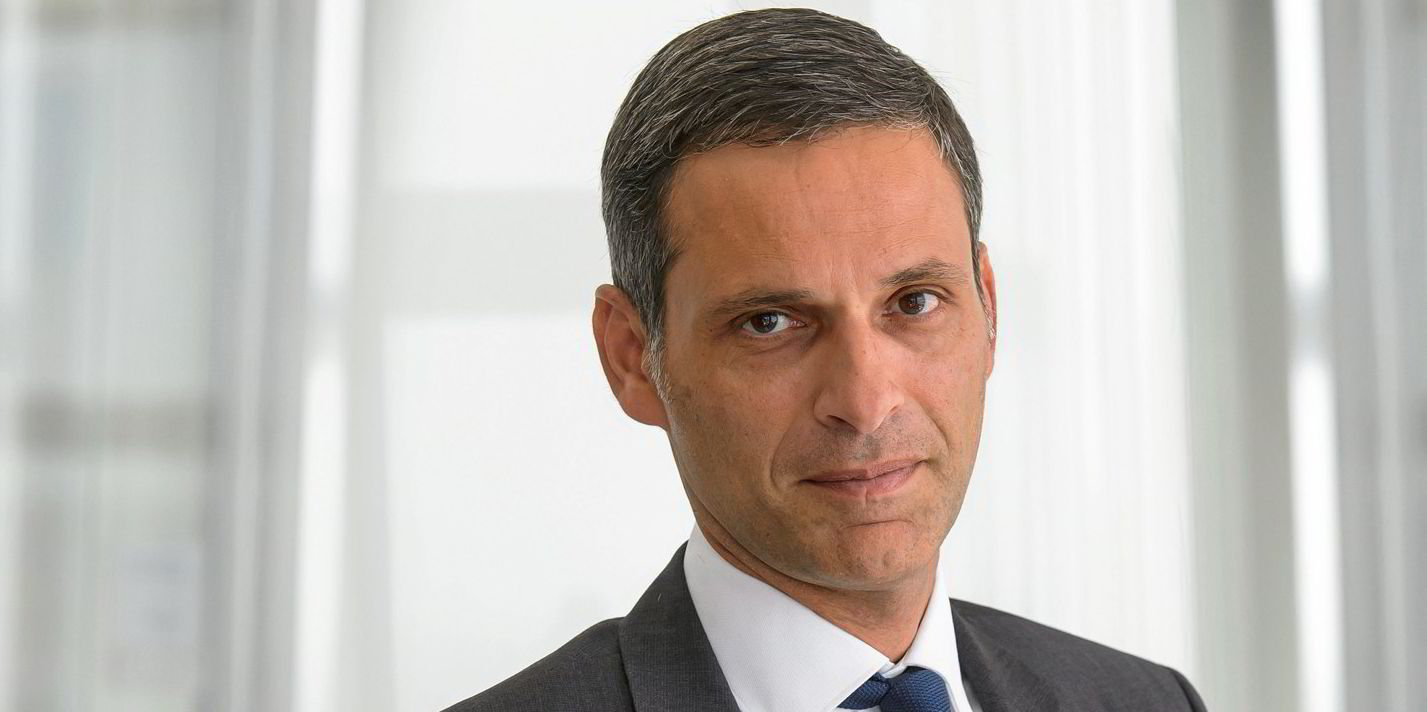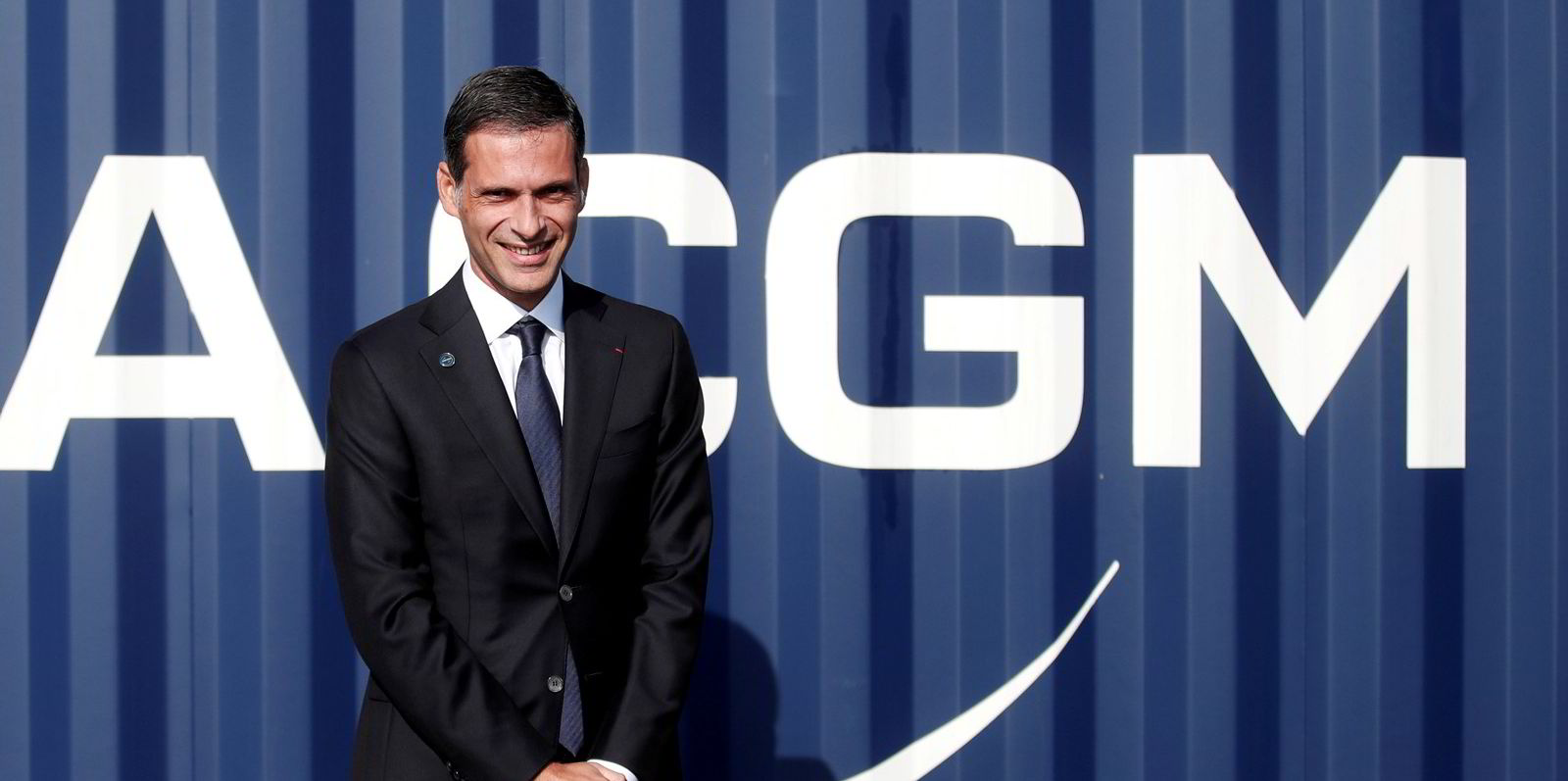Rodolphe Saade, the chief executive of French liner giant CMA CGM, took centre stage in the Chinese media last week when he officially inked orders for 16 dual-fuel container ship newbuildings with China State Shipbuilding Corp (CSSC).
Saade, who was part of a delegation accompanying French President Emmanuel Macron’s trip to China, personally signed the contracts worth CNY 21bn ($3bn) for 12 methanol dual-fuelled, 15,000-teu vessels and four LNG dual-fuelled, 23,000-teu ultra-large container ships.
Worth CNY 21bn ($3bn) in total, it was touted as the largest single newbuilding deal that CSSC has received.
However, despite the hype surrounding last week’s signing ceremony, TradeWinds can report that a six-ship order for 15,000-teu methanol dual-fuelled container ships at Jiangnan Shipyard was the only fresh order placed.
The other vessels included in the tally were ordered by CMA CGM in 2022 but the contracts were never formally announced until last week.
TradeWinds first revealed the order for four 23,000-teu newbuildings placed at Hudong-Zhonghua Shipbuilding (Group) in November last year, and the contract for six 15,000-teu methanol dual-fuelled container ships placed at Dalian Shipbuilding Industry Co (DSIC) in June last year.
Jiangnan, Hudong-Zhonghua and DSIC are all part of CSSC.
The LNG dual-fuelled ultra-large vessels were reported to cost at least $250m per ship, while the methanol-fuelled 15,000-teu ships at DSIC were priced at about $175m each. All will be delivered in 2025 and 2026.
CMA CGM has been extremely active on the newbuilding front in recent years, and has 96 container ships on order in China and South Korea, according to VesselsValue data.
The bulk of these orders are in the post-panamax, new panamax and ultra-large size ranges.
At last week’s signing ceremony, Saade indicated that these newbuildings were ordered in part to grow CMA CGM’s capacity and replace older ships.
He noted that the global economy will grow annually at around 2% to 3%, which he believes will be able to absorb the capacity of the new vessels.
During the trip to China, Saade also signed a deal with Shanghai International Port Group (SIPG) to secure bunkering of bio-methanol and synthetic methanol, Le Marin reported.
Chinese shipowner Cosco, with 12 methanol-fuelled vessels on order, also clinched a similar deal with SIPG.
In March, Danish rival AP Moller-Maersk also signed a bunker deal with SIPG.
The two companies will work together at the port of Shanghai to develop vessel-to-vessel fuelling operations in time for the delivery of its new methanol-powered boxships from 2024.





